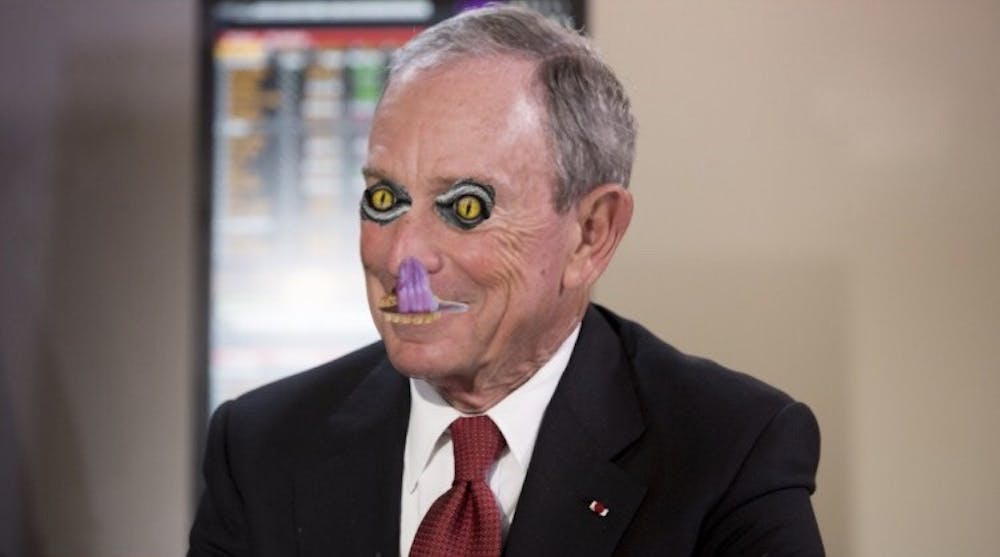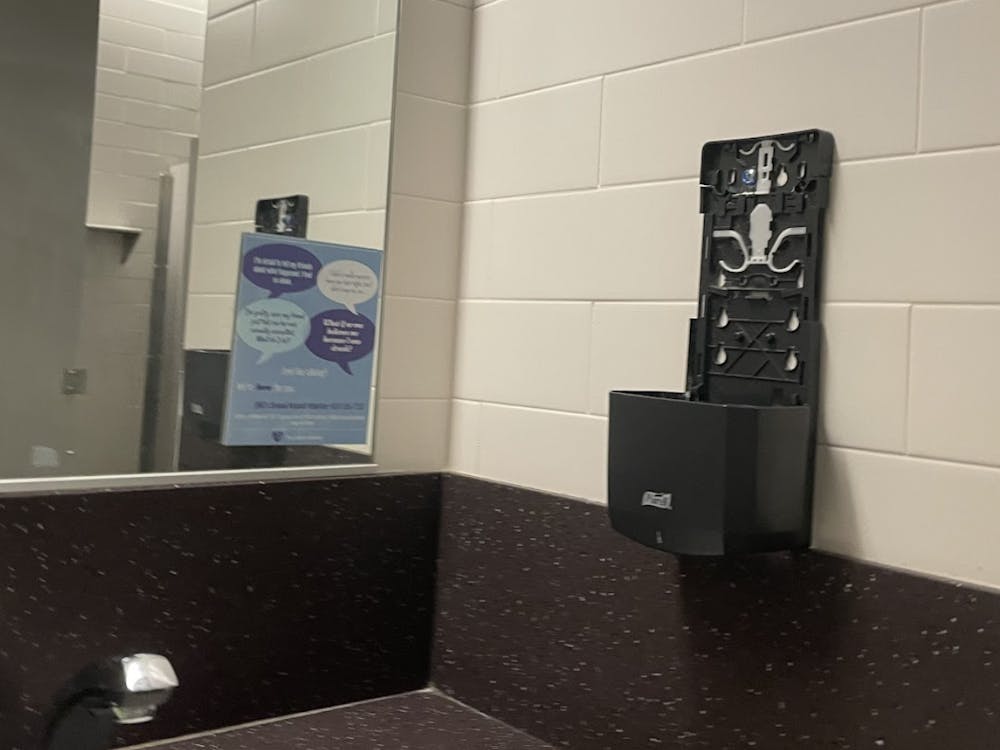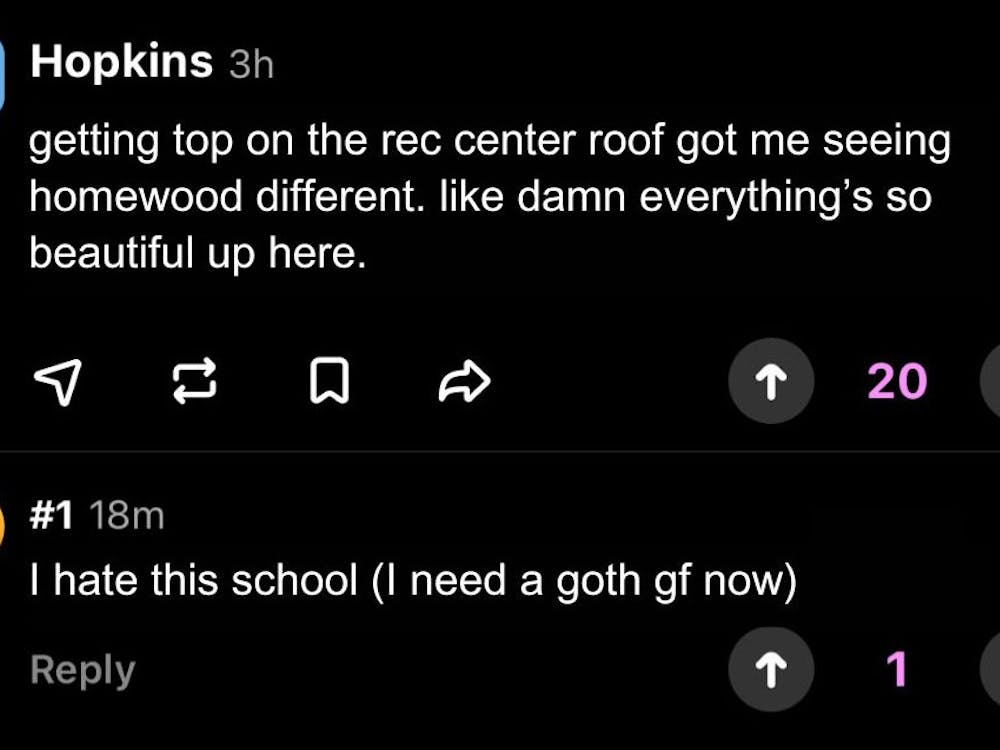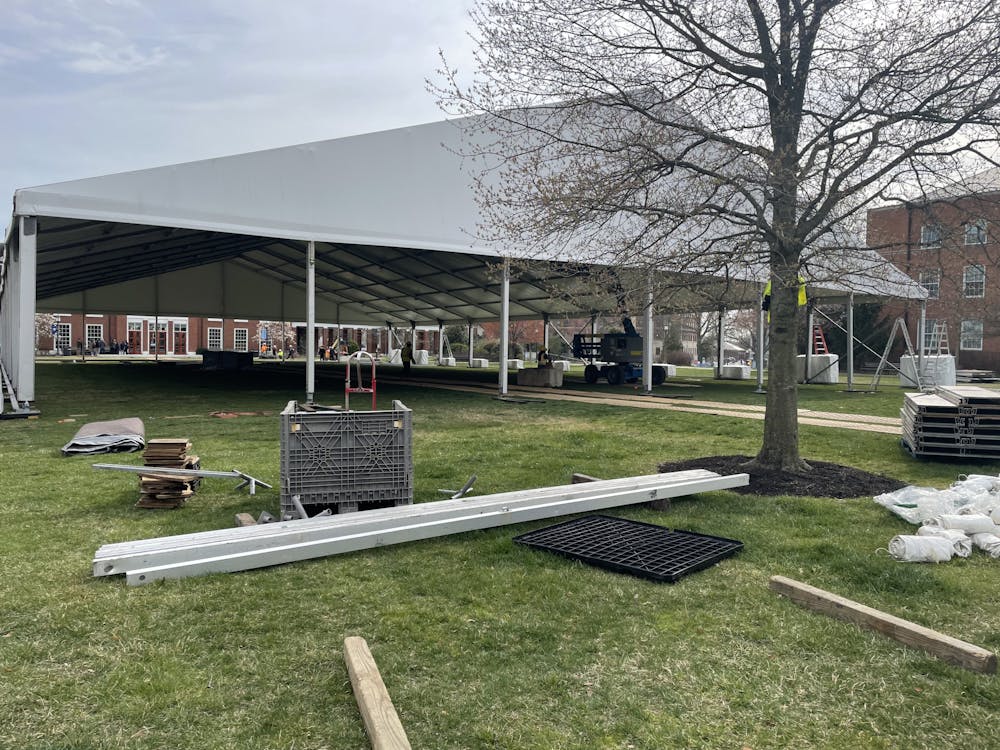APRIL FOOL’S: This article was published as part of The News-Letter’s annual April Fool’s edition, an attempt at adding some humor to a newspaper that is normally very serious about its reporting.
Former New York City mayor Michael Bloomberg announced on Monday that he plans to donate his body to Hopkins for research purposes after he dies. This announcement comes just months after Bloomberg, a class of 1964 alum, donated $1.8 billion to Hopkins for financial aid for low-income students.
In an interview with The News-Letter, Bloomberg justified his decision to donate his body to science.
“Philanthropy is incredibly important to me, and as an alum of Johns Hopkins University I feel it is my obligation to give back to the Hopkins community in any way I can, no matter how big or how small,” he said. “I just didn’t know how to top my last donation. What could possibly be more important to me than my money?”
The answer, of course, was his body, which Bloomberg hopes will contribute to the next great medical breakthrough. Upon his death, Bloomberg’s body will be shipped to the Johns Hopkins University Office of Ethically Dubious Medical Research (EDMR), which is rumored to have made recent strides in the field of cloning.
Vice Provost for Keeping Shit Under Wraps S. Ann Ridge would not confirm whether Hopkins sponsors clandestine work on cloning. She said that EDMR directors would decide where to direct Bloomberg’s donation when the time comes.
“We are so grateful to Michael Bloomberg for this incredibly generous gift,” she said. “He’s already given us so much, and we’re so excited to continue bleeding him dry even after his death.”
Peter Harrington, director of the Molecular Biophysics Lab on the Homewood Campus, said that his team was overlooked when the administration decided what will be done with Bloomberg’s body.
“There’s a lot of evidence to suggest that Bloomberg might be an extraterrestrial being, for example, the way his reptilian eyes seem to stare right into your soul,” Harrington said. “I’m fighting for the chance to bring him into my lab and determine whether his DNA is truly human.”
The University has a tenuous history with exploiting human remains for scientific purposes. In 1951, the Johns Hopkins Hospital took cells from Baltimore resident Henrietta Lacks without her permission, which sparked a national discussion about the ethics of using human cells or tissues without that person’s informed consent. Ridge explained how the University will ensure that Bloomberg’s body is handled responsibly.
“We’ve learned a lot since the Henrietta Lacks fiasco. We’re going to make sure we get permission from Bloomberg and his family beforehand, and the department that receives the cadaver will be subject to strict oversight by the Institutional Review Board,” Ridge said.
Bloomberg explained that he was not worried about Hopkins profiting from his remains — in fact, that’s the point, he said.
“You think I want my body to sit in a glass case somewhere collecting dust?” he said. “No, I’m hoping that Hopkins can use my body to rake in the cash. That’s why I’m excited to be part of this special EDMR project.”
One top official within EDMR confirmed rumors about the Office’s work on cloning, adding that Bloomberg had committed a significant percent of his net worth to EDMR after his death.
“I can’t really get into any of the details of our research, but suffice to say it rhymes with schmimmortality,” they said. “By leaving us not only his body but also his money, it’s more than just Bloomberg’s name that’s going to live forever.”
Bloomberg explained that he made this decision after he decided not to run for president in 2020.
“Now that I don’t have to worry about a presidential campaign, I can focus on my other passions — throwing my absurd wealth around. Take that last donation I made — $1.8 billion dollars? That’s three percent of my net worth. Imagine what else I can do,” he said. “I figured I may as well just donate everything I’ve got to Hopkins.”

















